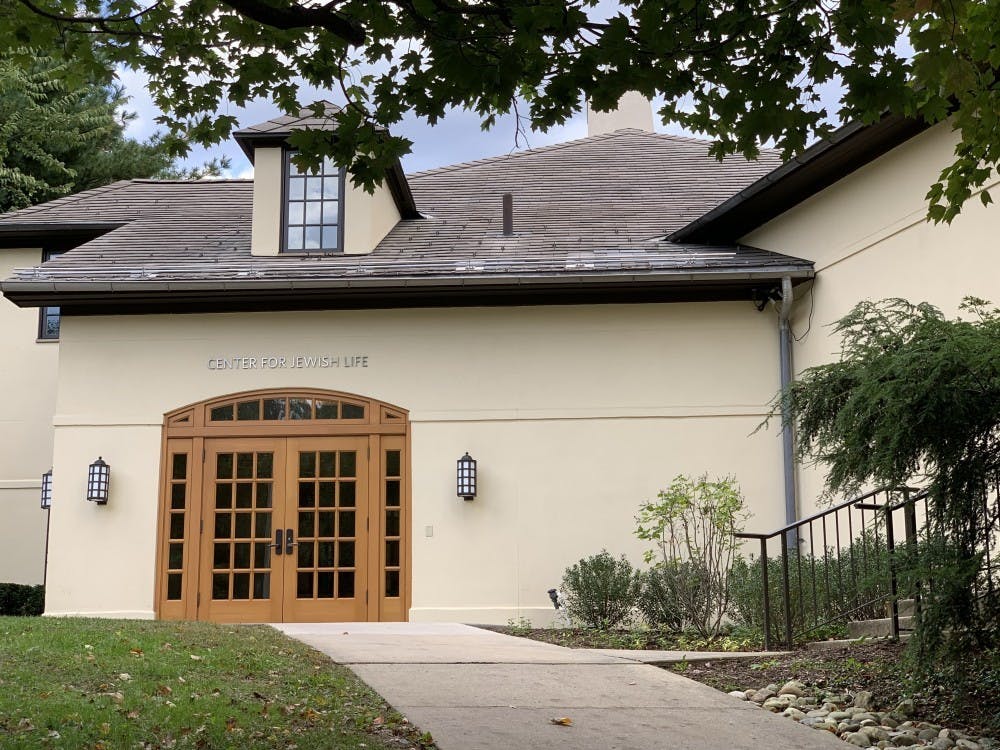Princeton defines first-generation students as students who are the first in their families to attend college. Such students are a growing minority on campus. As their presence increases, so does their contribution to the campus community. Princeton’s Class of 2027 is 17 percent first-gen. We should celebrate this expansion as well as the increase in resources offered to these students. But these resources are not offered to all first-gen students.
Princeton has not clearly defined who is considered FGLI (first-generation low-income), nor who is offered the specific resources that come with that group affiliation. The University has established programs designed to support first-generation students, such as the Scholars Institute Fellows Program (SIFP) and the Freshman Scholars Institute (FSI). When I asked who was eligible for FGLI-focused programs like SIFP and FSI, the Emma Bloomberg Center’s Coordination and Communications Associate Madison Stewart ’22 wrote that “all students who self-identify as either first-generation or lower-income (or both) are welcome to participate in SIFP. In addition, we have had students who are allies to the FLI community engage in SIFP.”
But, according to the University, students have to be selected to enter the programs — as they are invitation-only — and the selection process excludes some students who are not low-income. Additionally, these metrics come exclusively from what they indicate on their college applications months prior to their acceptances. This is inconsistent: the programs are not open to all, but to only some within the broad bucket of first-gen, low-income, or both.
This limitation is unnecessary. First-generation resources should not just be limited to low-income students. Princeton must be clear about to whom they are offering these resources, actively expand the ways in which first-generation resources are advertised to students, and embrace all students from first-generation backgrounds, regardless of their socioeconomic status.
The University knows that first-gen students often have a harder time adjusting to the social environment and academic rigor of Princeton because many of them lack mentors and other resources that may ease their transition to college. For example, many FGLI students may not be able to get comprehensive advice from family and community members on deciding their majors, grad school, internships, career opportunities, and other academic and professional concerns.
Often these students are represented together as first-generation and low-income, which creates an exclusionary environment for first-generation students of diverse socioeconomic backgrounds and invalidates the challenges that students who fall into only one of these categories experience. It is inequitable to fail to provide mentorship and resources to first gen-students who aren’t low income, as these students still lack the support systems that their peers from highly educated backgrounds have.
These programs have been successful at helping FGLI students. To extend this success, the University should make sure that these programs are accessible to all first-generation students regardless of income. In order to do so, the advertisement and selection process of these programs should be more transparent.
When emails were sent to students in the Class of 2027 to join SIFP in the fall, they were not sent through the residential college listservs, which is one of the primary channels for students to receive information about campus programs and events. Rather, this email was sent to preselected students through an invitation stating that SIFP is “primarily dedicated to students who are the first in their families to attend college and those who come from lower-income backgrounds.” However, it is unclear whether this email was sent to all students who are either first generation or low income, or just students who are both first generation and low income. For instance, I, a first-generation student, was not included on this email list. To be truly inclusive, these programs need to be better marketed towards students in order to increase accessibility.
Of course, it would be impossible to ignore the role that a high income plays in privileging certain Princeton students over their low-income peers. Students of higher socioeconomic status are more likely to gain entry into elite universities such as Princeton. Students with family incomes in the top 1 percent, making $611,000/year, have a 2.2 percent higher chance of gaining admission into Ivy League colleges than students with family incomes in the bottom 99 percent who have the same test scores. Students whose parents have attained higher levels of education are also more likely to be employed and earn higher salaries. These differences should not be diminished and are extremely important to recognize when discussing college admissions, matriculation and first-generation students.
However, the impacts of being the first person in your family to attend college extends beyond the mere markers of income. When equalizing income, first-generation students are still less likely to graduate college, less likely to continue onto graduate and professional programs, and more likely to lack cultural capital helpful to college success. Although Princeton’s graduation rates are higher than that of other institutions, the first-generation demographic and its unique needs should not be ignored. It is important that mentoring and resources for FGLI students are still equally offered, even to first-gen students who are not low-income.
With recent goals to improve socioeconomic diversity on campus, Princeton must be able to offer resources to students who identify as either first generation, low-income, or both, and fully in a way that is accessible to them, not only to students who are invited to FSI. Better advertisement is just the beginning of increasing accessibility of student resources. The University must recognize that not being aware of the resources that a college offers is one of the obstacles first generation students face. Princeton needs to be upfront and proactive about the resources that are available to us. First generation student resources can be extremely helpful to students who need them, but the University must make sure it is able to meet such students’ needs, which may vary based on income, first-generation status, and background.
Financial privilege should never diminish the need for support that comes with a first-generation identity across all incomes. Princeton University’s President Christopher Eisgruber ’83 has said, “I am proud of what we have done to increase socioeconomic diversity at Princeton, but I also believe that we need to do more — and we will do more.” To do more, resources for first-generation students should be accessible not to some but to all students who identify as such, and the University must do better in living up to that commitment.

Liz Reyes is a first-year contributing columnist planning to concentrate in SPIA. She is from Cherry Hill, N.J. and can be reached at lizbeth.reyes@princeton.edu.








